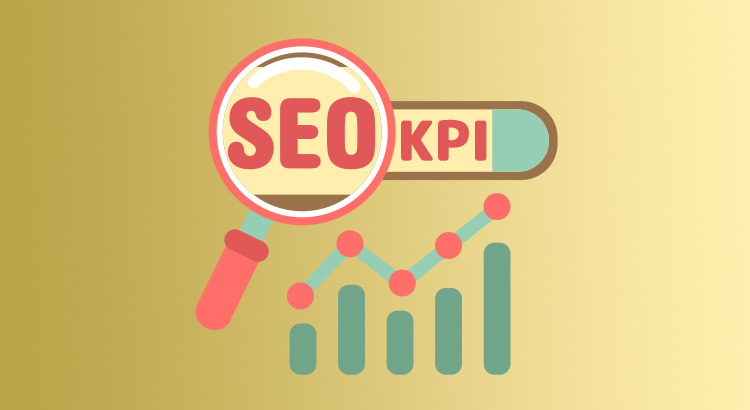To know the effectiveness of your SEO efforts, it’s crucial to track and measure specific metrics known as Key Performance Indicators (KPIs). These SEO KPIs provide valuable insights into the performance and impact of your SEO strategy. This guide will explore 12 key SEO KPIs that every marketer should track and measure.
What Are SEO KPIs?
SEO KPIs (Key Performance Indicators) are metrics utilized to measure the effectiveness of SEO tasks. These indicators encompass various aspects such as organic visibility, keyword rankings, organic click-through rate (CTR), and conversions.
Keeping an eye on these KPIs offers stakeholders insights into the success of search engine optimization strategies.
12 Most Important SEO KPIs
1. Conversions (Sales and Leads)
Organic conversions, including sales, leads, and subscriptions, are paramount SEO KPIs. Tracking these metrics directly links SEO efforts to business success.
It’s essential to establish conversion benchmarks and monitor conversion rates alongside total conversions for insightful analysis. Google Analytics facilitates efficient conversion tracking and comprehensive reporting.
Related Article: Conversion Rate Optimization: Turning Clicks into Customers for Small Businesses
2. Customer Lifetime Value (CLV)
Customer Lifetime Value (CLV) predicts total profit from a customer throughout their association with your business.
It’s a pivotal KPI guiding SEO investment allocation and broader strategic decisions, fostering optimization across departments by assessing long-term customer worth.
3. Cost Per Acquisition (CPA)
Cost Per Acquisition (CPA) evaluates the expense incurred to acquire a single converting user.
Vital for SEO campaigns, it scrutinizes expenses against conversions, enabling insights into campaign efficiency and potential areas for optimization. Tracking CPA over time unveils trends and informs strategic adjustments.
4. Return on Investment (ROI)
Return on Investment (ROI) gauges the profitability of funds invested. It’s the ultimate validation of SEO efforts, indicating whether resources allocated to content, outreach, and maintenance yield positive returns.
While challenging to measure, tracking ROI over time ensures strategic alignment with performance goals.
5. Organic Visibility
Organic visibility measures your brand’s presence in organic search results, crucial for SEO assessment and overall business expansion.
While traditionally tied to standard SERPs, today’s dynamic landscape requires diverse analytics tools for accurate tracking. Google Search Console offers insights into impressions, showcasing growth in visibility, a key indicator of SEO progress.
6. Organic Sessions
Organic sessions, the culmination of impressions translating into website visits, reflect the tangible impact of SEO efforts. Tracking these sessions elucidates the efficacy of SEO strategies in driving traffic and, ultimately, conversions.
Google Search Console provides insightful data, excluding branded searches, for precise SEO KPI assessment.
7. Branded vs. Non-Branded Traffic
Differentiating between branded and non-branded traffic provides valuable insights into marketing effectiveness. While branded traffic signifies existing brand recognition or referrals, it’s not indicative of SEO success.
Non-branded traffic, however, reflects SEO efforts, targeting users unfamiliar with the brand, thus serving as a vital SEO KPI.
Related Article: What Are Branded Keywords and How to Use Them in SEO?
8. Keyword Rankings
Keyword rankings serve as a crucial SEO KPI by offering detailed insights into traffic-driving keywords and their impact.
Historically, tracking a limited set of keywords sufficed, but semantic search’s emergence necessitates monitoring a broader spectrum. Understanding ranking trends aids in optimizing content strategies effectively.
9. Google Business Profile Metrics
Google Business Profile (formerly Google My Business) is essential for local businesses, facilitating management of their Google presence.
Leveraging this free tool provides access to valuable metrics like searches, views, clicks, direction requests, and calls, offering insights into local business visibility and engagement.
10. Backlinks
Backlinks are essential for SEO, acting as endorsements from other sites. They significantly impact your site’s ranking on Google. It’s vital to assess your link profile’s health, particularly compared to competitors. Key metrics include:
- Total number of backlinks
- Total number of referring domains
- Number of links lost
- Number of links earned
11. Organic CTR
Click-through rate (CTR) is not a direct ranking factor, but it heavily influences your site’s traffic. Higher CTR indicates better engagement and relevance.
Tracking CTR at both page and query levels is crucial for assessing SEO performance. It reflects the effectiveness of title tags and meta descriptions.
12. User Engagement
User engagement metrics, such as bounce rate, average time on page, session duration, and pages per session, are crucial for assessing SEO performance.
However, their significance varies based on your business type and goals. For instance, high average time on page may indicate content relevance or confusion, depending on your content strategy.
Wrapping Up: SEO KPIs
Tracking and measuring SEO KPIs are essential for assessing the effectiveness of SEO strategies and optimizing performance. By monitoring the SEO metrics, businesses can make informed decisions to improve their search engine presence and drive meaningful results.


